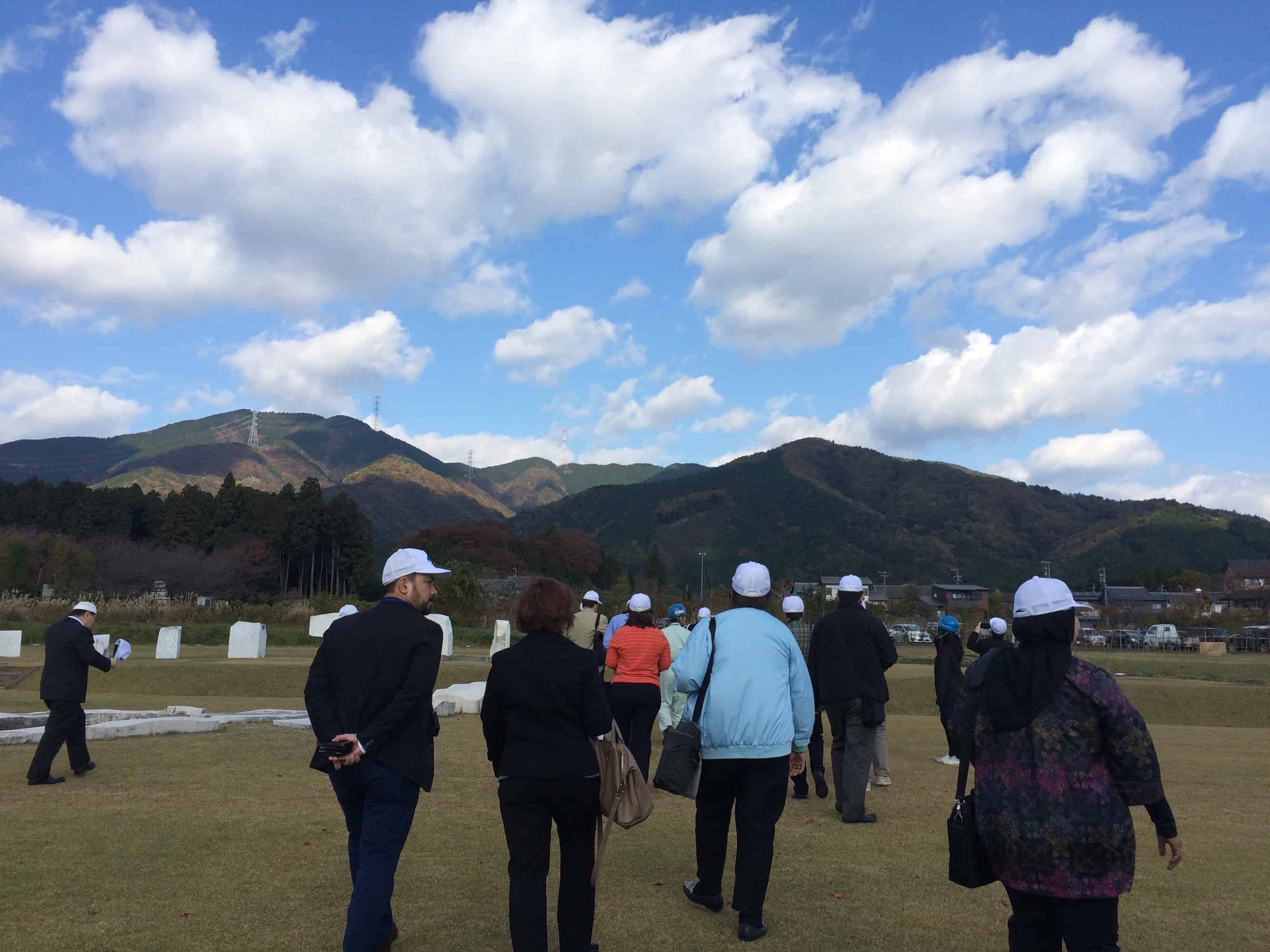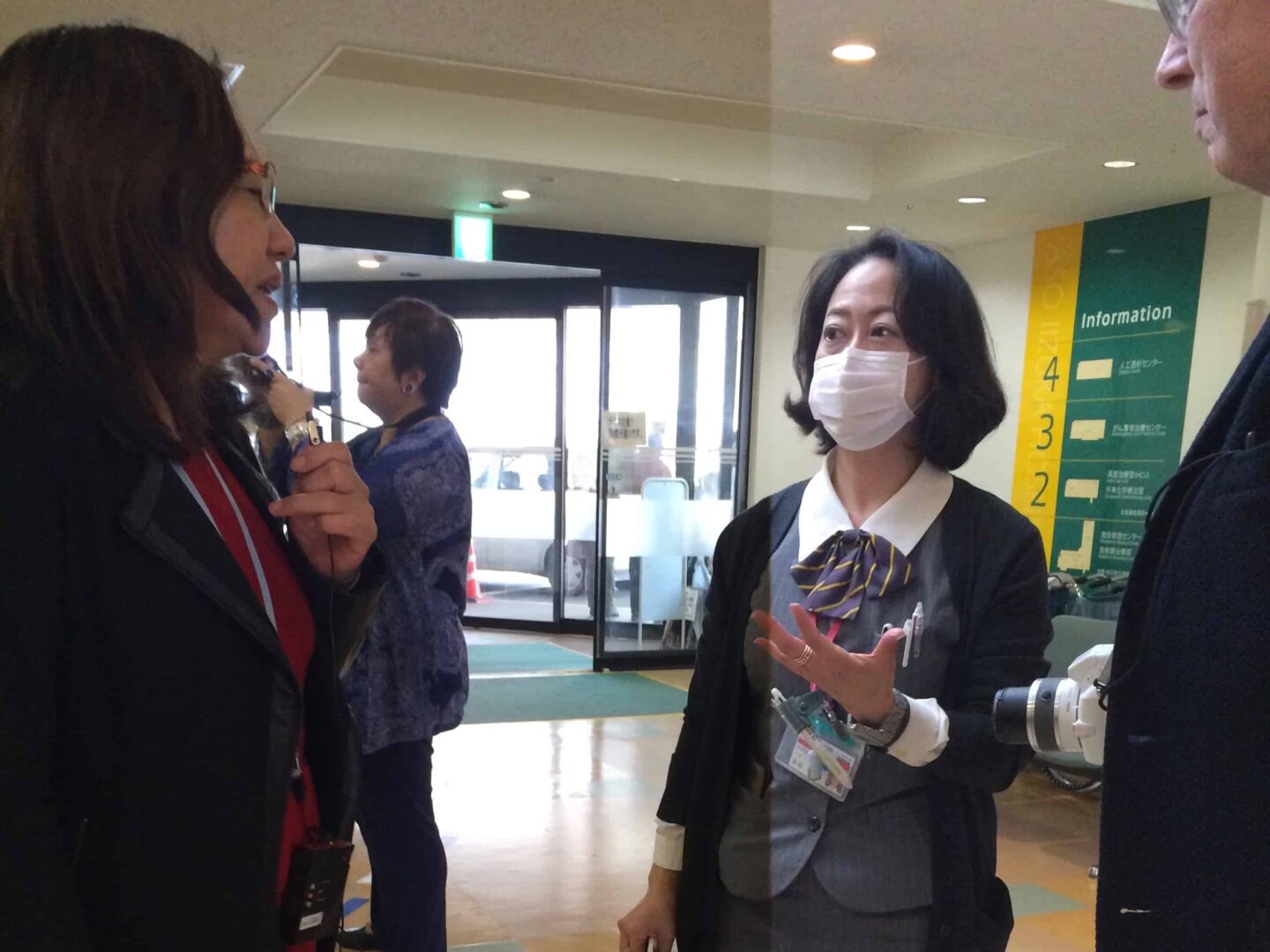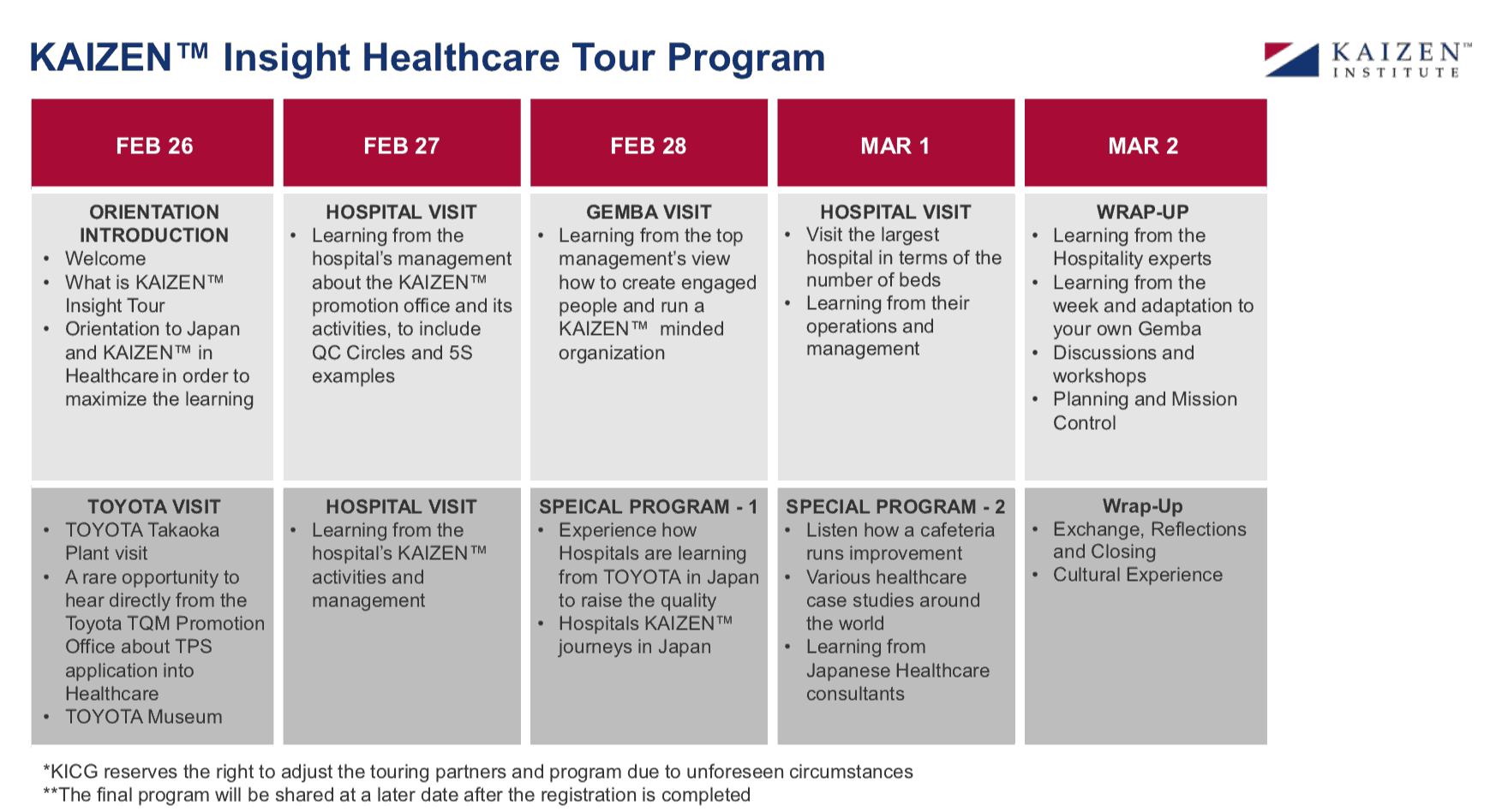Again, there's still time to sign up for the next Lean and Kaizen study trip to Japan that I'm facilitating with Kaizen Institute, from February 26 to March 2, 2018. There's still room in the tour if you'd like to join us.
Learn more on my website about the trip or you can register through the Kaizen Institute site (please tell them I sent you – as a marketing partner, I do receive a commission for each attendee who learns about the trip through me). You can also use the contact form if you'd like to be added to the mailing list about future trips.
Read my blog posts about past trips.
In the trips, there's a lot of variety. Here's a photo outside of a large industrial factory that we visited in 2014:

And here's a photo from inside a hospital that we visited:

Thoughts from Risa Cox of Kaizen Institute
Risa Cox is the Managing Director of Kaizen Institute Consulting Group, Ltd.
Here are some of her thoughts about the trip, which she will be a part of:
“I see the Insight Tours in Japan something that should not be expected as exposure or learning about the best practices or lean practices only. You can do these things anywhere and you don't have to go to Japan. The Insight Tours are for you to ‘FEEL' the real KAIZEN emotionally, so that you become real KAIZENer to be effective to make sustainable way of work that is fun, motivating, and lasting, which would achieve remarkable results.
We are investing in the development of how to help organizations to be like Toyota on the fast track over the last three decades. Such learning can be so much more successful when the people FEEL Kaizen, and in my opinion, this tour is the only opportunity we can offer such deep learning.
Emotional experience will stay with you forever, I'm looking forward to share such occasion with you!”
Thoughts from Mark Graban:
Last week, I shared an interview with Carsten Otto, a Senior Consultant with Kaizen Institute Consulting Group. He's the Lead Consultant for the tour.
This time, Kaizen Institute had questions for me. You can download a PDF or read the Q&A below:
Meet our Guest Facilitator for the KAIZEN™ Insight Healthcare Tour
Feb 26 – March 2, 2018
Mark Graban, United States – Author, Lean Hospitals and Healthcare Kaizen
Q Please share how you got into healthcare consulting?
A After working for ten years in manufacturing, I was presented with the opportunity to join a consulting group that used to be a part of Johnson & Johnson. This team taught Lean and facilitated improvement projects in medical laboratories and hospitals. I wasn't trying to get away from manufacturing; this just seemed like a great learning opportunity and a way to make a difference. After more than twelve years, here I am, still in healthcare!
Q You have been on the Insight Tours before, please share your unforgettable moments and remarkable learnings?
A Yes, I participated in 2012 and 2014 and learned something new each time. In the first trip, my eyes were opened to the ways the Japanese national culture influences Toyota and Lean. Learning about the importance of harmony, seeing how what we might call “standardized work” or “kata” are followed so consistently when you buy something in a store, and the devotion to customer service that you see in hotels and restaurants remind me of core Lean principles.
At the same time, we had many discussions about KAIZEN™ not necessarily being the norm in Japanese companies – that everybody is not Toyota. Toyota has to work hard to create a culture that helps them be successful – a workplace culture that is successful around the world, by the way. I've heard people around the world say, “Lean would be easy if we were in Japan.” But, I've seen and heard from leaders in Japan who explain that it's hard work to create a culture of Lean and KAIZEN™.
I've also enjoyed the food, the cultural experiences, and the immersion into a different country's culture. And, each time, the Kaizen Institute staff have made Japan very easy to navigate so I can focus on learning. I've also enjoyed comparing notes and learning from the people who have traveled from many countries to participate. Our transit time and meals provide a great opportunity for discussions and sharing.
Q What is your advice to conduct Lean activities successfully when staff members are new to such concepts?
A I think it's important to help staff solve problems that matter to them and their patients. Avoid the temptation to teach a series of Lean tools and then ask people to go implement new tools. We should focus on making work easier for staff,
which makes their work more satisfying and allows them to focus more on the patients. I always try to emphasize that Lean and KAIZEN™ does not mean we are turning the hospital into a factory; we're trying to help the hospital be the best hospital it can be.
Q What is your advice for the organization which has been on the lean journey for some time to do even better?
A I'm still surprised to see how many hospitals explain something to the effect of, “We've been implementing Lean for five years and now we're going to focus on KAIZEN™.” I believe strongly that it's not really Lean without KAIZEN™. I also encourage people to use the phrase “practicing Lean” instead of “implementing Lean,” because the word implement implies that you'll be finished at some point. The word practicing implies learning, trying new things, reflecting, and adjusting.
I found it interesting that some Japanese hospitals have been traveling to the U.S. to see examples of Lean in healthcare – after those American hospitals first came to Japan. It's interesting to see how hospitals in both countries sometimes hesitate to learn from other industries. But I'm glad that the Kaizen Institute tours allow us to visit and learn from Toyota and companies in other industries and, in addition, to visit hospitals. There's something to learn from everyone; it's our job to translate or adapt our learning and inspiration back to our own workplace.
Q What kind of expectations should I have when I visit Japan?
A Come with an open mind and try to avoid pre-conceived notions, including what I've shared in this interview. Look, listen, learn and draw your own conclusions. You should expect to have some of your thinking challenged. You should also expect to have fun, to enjoy new food and new experiences, and to smile a lot. Lean and healthcare are very serious, but this visit combines studious learning and reflection with a fun spirit – which is the same impression I have of Japan… simultaneously serious and fun… crowded, yet orderly… busy, yet peaceful. I can't wait to experience it again and for you to join us.
Tour Details:
Here is the plan for the week, Monday through Friday (click for a larger view):
And here is a PDF about the tour.
Get more info and contact us to get registered.
Please scroll down (or click) to post a comment. Connect with me on LinkedIn.
Let’s work together to build a culture of continuous improvement and psychological safety. If you're a leader looking to create lasting change—not just projects—I help organizations:
- Engage people at all levels in sustainable improvement
- Shift from fear of mistakes to learning from them
- Apply Lean thinking in practical, people-centered ways
Interested in coaching or a keynote talk? Let’s start a conversation.










